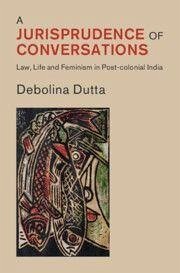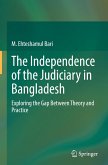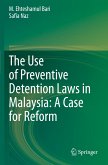Grounded in empirical studies, this book is both a history of the emergence of feminist jurisprudence in post-colonial India and a model of innovative legal research. The book inaugurates a creative practice of scholarly activism that engages a new way of thinking about law and feminist jurisprudence, one that is geared to acknowledge and take responsibility for the hierarchies in Indian academic practices. Its method of conversation and accountability continues the feminist tradition of taking reciprocity and the time and place of collaboration seriously. It helps make visible the specific ties between post-colonial life and law and joins the work of refusing and reimagining the hierarchical formation of legal knowledge in a caste-based Indian society. A significant contribution to the history and practice of feminist jurisprudence in post-colonial India, A Jurisprudence of Conversations will appeal to both an academic and activist readership.
Bitte wählen Sie Ihr Anliegen aus.
Rechnungen
Retourenschein anfordern
Bestellstatus
Storno








